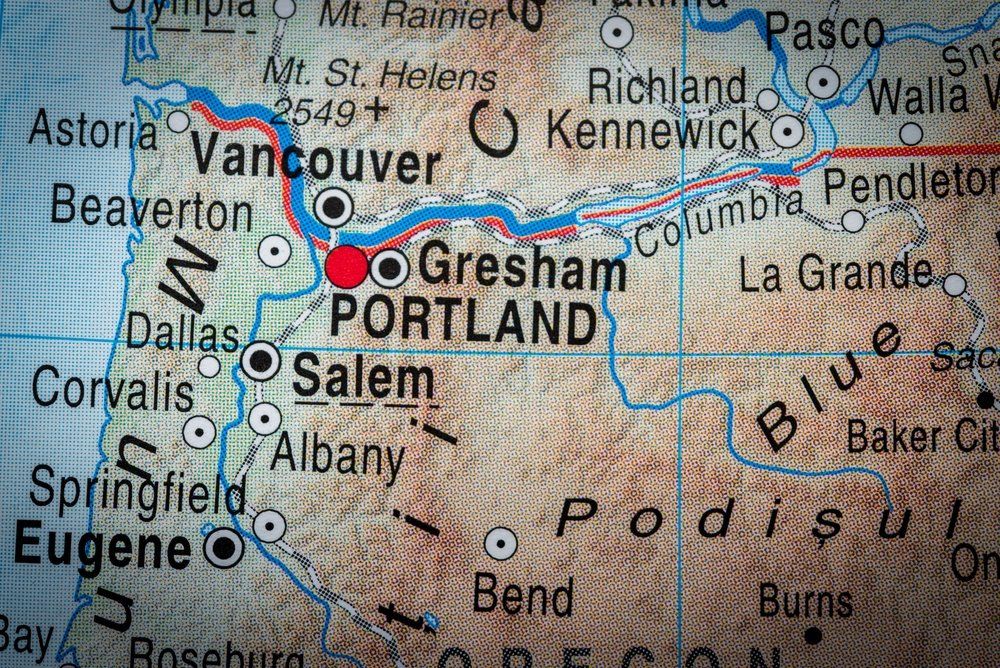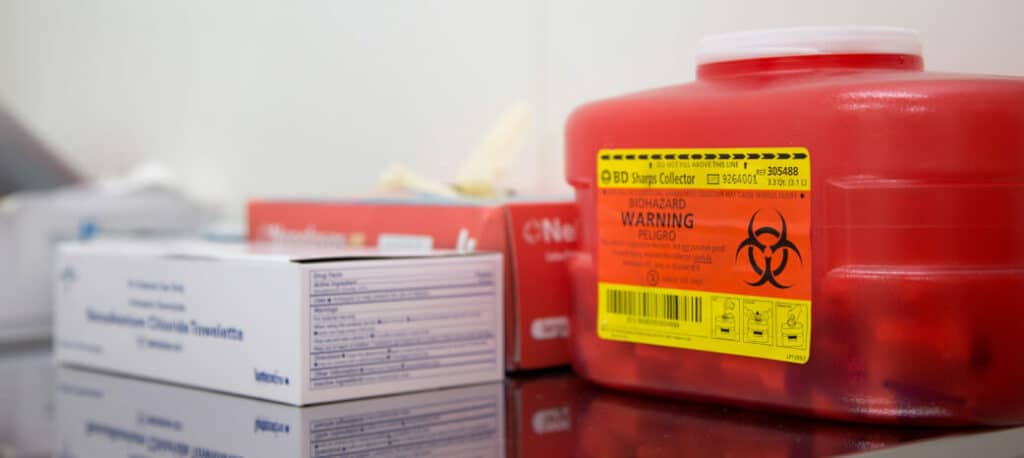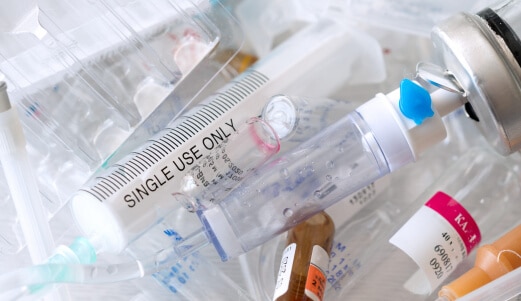
Oregon Medical Waste Disposal
Annual Savings offered by MedPro Disposal in Oregon
See below for some of our Oregon quotes, saving Oregon Practices thousands of dollars.
The MedPro Disposal Difference
Safe medical waste disposal has never been so simple and affordable. How do we keep our prices so low? By charging only for the services you need and keeping our operating costs low to pass along the savings.
Every practice is different, and we tailor a custom solution that fits your needs and budget, from our pick-up schedule to the right kinds of biohazard and sharps containers.
Find out how much you can save instantly. Try our online savings calculator.
Oregon Locations Serviced
We offer biohazard and medical waste disposal services throughout Oregon, including:
It’s Easy to Get Started With MedPro Disposal

Contact Us
Contact MedPro Disposal for a fast, free medical waste removal quote. We’ll get to know you, discuss your needs, and settle on a number. You may be surprised at how much you can save on medical waste disposal with MedPro Disposal.

Waste Pickup Date
Work with MedPro Disposal to determine your first pickup date. We’ll confirm your office hours and provide convenient options for medical waste and sharps pickup.

Compliance Survey
Complete a compliance survey. After we get to know your requirements, we’ll send you a survey to identify any areas that need to be brought up to OSHA standards.
All three steps occur at no additional cost to your practice. You’re on your way to safe, affordable, compliant medical waste removal!
Contact MedPro Disposal Today for a Fast, Free Quote!
Oregon Medical Waste Savings
| Practice Type | Zip Code | Projected Annual Savings |
|---|---|---|
| Cancer Treatment Center | 97420 | $48,000 |
| Plastic Surgery | 97035 | $240 |
| Health Care Clinic | 97037 | $1,200 |
| Funeral Home | 97219 | $8,160 |
| Family Practice | 97212 | $1,920 |
| Allergist | 97205 | $600 |
Find Out How Much You Can Save Instantly
Try our on-line savings calculator.

Oregon Medical and Biohazardous Waste Disposal

It’s a place where people can ski down an active volcano, scale a cliff face made of volcanic ash, go spelunking through underground tunnels carved out by lava, and that’s barely scratching Oregon’s adventure surface. There are so many outdoor adventures to be had, the Oregon Tourism Commission named “seven wonders of Oregon” that give any natural wonder a run for its money.
Oregon’s highest summit and active volcano, Mt. Hood made the list, as did the deepest lake in the country, Crater Lake. Oregon’s 363 miles of cliff and beach-lined coast, and the expansive Painted Hills that reveal layers of color and history, each landed on the seven wonders list.
Smith Rock, a set of sheer cliffs carved out of volcanic ash, and the Wallowas- a vast area of peaks, valleys and beautiful wilderness, come in as wonders five and six. The Columbia River Gorge rounds out Oregon’s seven wonders, a site that was designated a National Scenic Area by Congress.
Oregon Invites Independence

Oregon prides itself on letting people choose their own adventure. The back country is meant to be explored, the road less traveled is meant to be taken, the nooks and crannies are meant to be discovered. The Beach Bill passed in 1967 ensures the state’s entire coastline will always remain open to the public, every last piece of it.
This kind of explore-at-will attitude leaves residents and tourists with limitless possibilities. Mountain biking, rappelling, wind surfing, kayaking, caving, snow shoeing, fishing, Oregon offers it all. And they offer it with no strings attached.
Oregon Adds to Adventure
Not only does Oregon encourage outdoor adventure and discovery, it adds to it. One of the state’s biggest industries is in outdoor gear and footwear. Nike and Columbia Sportswear have headquarters here and Adidas’ North American plant is also in the state. Other Oregon manufacturers have carved out niches with boats, bicycles, water sports equipment, and more.
Oregon Protects Its Assets
Oregon is serious about protecting its landscape. The people of Oregon know that if they do not care for their natural wonders, they will lose them. That’s why Oregon has risen as the number one state for percentage of its workforce in the clean technology industry. The state is a haven for electric car makers and solar, wave and wind energy innovators. Even its forestry and building industries are known for their green practices.
According to the United States Census Bureau, Oregon has almost 4,000,000 people who call it home. Portland is the state’s largest city with 619,000 people, followed by Salem, the State capitol, at 161,000. Eugene is the third largest city with 160,000 and the next largest city drops to 110,000 in Gresham. Oregon’s people live in smaller cities, they are spread out across the beautiful landscape, and they value being able to get out of town and into nature quickly. If protecting the environment wasn’t a top priority for the state, it would negatively impact the businesses who do work here, the people who choose to live here and the economy as a whole.
Taking Care of Oregon Means Taking Care of Medical Waste
Medical waste disposal in Oregon is controlled and regulated by the Department of Environmental Quality. This department lays the groundwork for what constitutes medical, biohazardous or other dangerous materials and the best way to dispose of those materials without harming humans or the environment.
Here are a few things the state of Oregon deems in need of special medical or biohazardous waste disposal processes:
- Biological Waste: Blood or body fluids that cannot be flushed into the sewer system, or anything that comes into contact with blood or body fluids like gloves, gauze, or paper towels.
- Cultures and Stocks: Cultures, solutions or serums often mixed in a lab. These have etiologic agents and biologicals that require special disposal methods. This also applies to dishes and devices that come into contact with the cultures and stocks.
- Pathological Waste: Human tissue acquired through surgery, autopsy, or other procedures. This also includes materials that come into contact with pathological waste like bedding and bandages.
- Sharps: Needles, syringes, scalpels, or any other sharp item removed from its sterile container.
MedPro Disposal & Medical Waste
MedPro Disposal services Portland, Eugene, Roseburg, Springfield, and the Dalles in Oregon, ensuring that medical facilities of all types are able to properly dispose of their waste in a manner that is safe and compliant with the law. Here is how MedPro Disposal stands out above other medical waste disposal companies:
- Cost: MedPro Disposal works with each individual client to come up with a pickup and drop off routine that fits within that client’s schedule and budget. Customized plans are available for the smallest offices or the largest hospitals.
- Flexibility: MedPro Disposal is only one phone call away from postponing or adding an extra pickup when needed. Drivers work together to coordinate schedules so that the company does not spend extra time or money backtracking or crossing each other’s routes. They work efficiently in order to keep their clients’ cost to a minimum.
- Experience: MedPro Disposal has years of experience and has expanded into 44 of the 50 states. It is familiar with all types of clients from veterinarians to private practices to dentist offices. It has the know-how to operate within each state’s regulations and ensures its clients will be 100% compliant with the law.
- Trust: MedPro Disposal does the dirty work that medical professionals shouldn’t have to spend time doing. They stay updated with each state’s rules and regulations and makes sure to continue operating in compliance with every last one of them. MedPro Disposal’s clients trust the company to handle a vital part of their business so that they can keep caring for patients without giving medical waste a second thought.
Oregon EPA State Definitions
Classifications of Waste
Medical waste is a solid waste generated as a result of patient diagnosis, treatment, or immunization of human beings or animal. Medical waste, other than infectious waste or hazardous wastes, may be disposed of without special treatment in permitted municipal solid waste landfills, if such disposal is not prohibited in the permit.
Types of Wastes
(a) “Biological waste”, which includes blood and blood products, excretions, exudates, secretions, suctionings and other body fluids that cannot be directly discarded into the municipal sewer system, and waste materials saturated with blood or body fluids, but does not include diapers soiled with urine or feces. In addition, biological waste does not include articles contaminated with fully absorbed or dried blood, such as gauze, paper towels, and sanitary napkins;
(b) “Cultures and stocks”, which includes etiologic agents and associated biologicals, including specimen cultures and dishes and devices used to transfer, inoculate and mix cultures, wastes from production of biologicals, and serums and discarded live and attenuated vaccines. “Cultures” does not include throat and urine cultures;
(c) “Pathological waste”, which includes biopsy materials and all human tissues, anatomical parts that emanate from surgery, obstetrical procedures, autopsy and laboratory procedures and animal carcasses exposed to pathogens in research and the bedding and other waste from such animals. “Pathological waste” does not include teeth or formaldehyde or other preservative agents;
(d) “Sharps”, which includes needles, IV tubing with needles attached, scalpel blades, lancets, glass tubes that could be broken during handling and syringes that have been removed from their original sterile containers.
Storage Requirements
Infectious waste shall be segregated from other wastes by separate containment at the point of generation. Enclosures used for storage of infectious waste shall be secured to prevent access by unauthorized persons and shall be marked with prominent warning signs.
Infectious waste, except for sharps, shall be contained in disposable red plastic bags or containers made of other materials impervious to moisture and strong enough to prevent ripping, tearing or bursting under normal conditions of use. The bags or containers shall be closed to prevent leakage or expulsion of solid or liquid wastes during storage, collection or transportation.
Sharps shall be contained for storage, collection, transportation and disposal in leak proof, rigid, puncture-resistant red containers that are taped closed or tightly lidded to prevent loss of the contents. Sharps may be stored in such containers for more than seven days.
All bags, boxes or other containers for infectious waste and rigid containers of discarded sharps shall be clearly identified as containing infectious waste. Infectious waste shall be stored at temperatures and only for times established by rules of the Department of Human Services.
Infectious waste shall not be compacted before treatment and shall not be placed for collection, storage or transportation in a portable or mobile trash compactor.
Infectious waste contained in disposable bags shall be placed for collection, storage, handling or transportation in a disposable or reusable pail, carton, box, drum, dumpster, portable bin or similar container. The container shall have a tight fitting cover and be kept clean and in good repair.
The container may be of any color and shall be conspicuously labeled with the international biohazard symbol and the words “Biomedical Waste” on the sides so as to be readily visible from any lateral direction when the container is upright.
Each time a reusable container for infectious waste is emptied, the container shall be thoroughly washed and decontaminated unless the surfaces of the container have been protected from contamination by a disposable red liner, bag or other device removed with the waste.
Trash chutes shall not be used to transfer infectious waste between locations where it is contained or stored.
Oregon State Resources
Oregon Little-Known Facts
Oregon is full of deep-water trenches, not only is Oregon home to Crater Lake, the deepest lake in the United States. It is also home to Hells Canyon which is North America’s deepest river gorge at 8,000 feet deep!
Oregon Online Safety Compliance Portal
We strive to provide you services in Oregon that will save you money! Part of this process is to make sure you are not paying for more than you generate.
We understand the importance of saving your money without sacrificing service. MedPro will be your partner in your medical waste management program by being a low-cost provider of medical waste disposal and OSHA training services.
Have questions about compliant biohazard waste and sharps waste disposal best practices?
Why Choose MedPro Disposal for Medical Waste & Sharps Container Disposal in Oregon?
Methods of Oregon Medical Waste Disposal
On-site Medical Waste Collection
Package medical waste on-site, then leave it for collection by a medical waste disposal company.
Mailback Waste Disposal
Properly package and label the sharps, then send the biohazardous waste safely through the mail for disposal.








